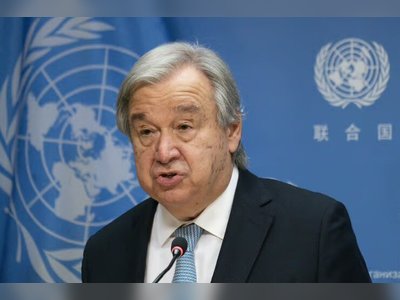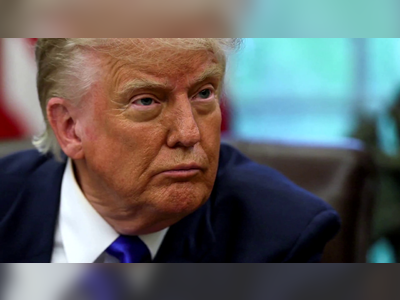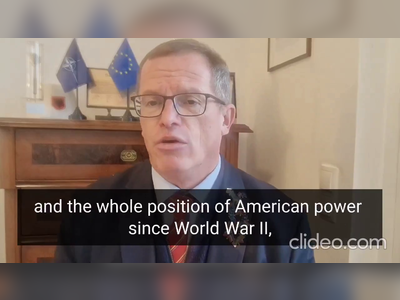Hungarian Minister Sanctioned: A Surprise Move by the United States
The unexpected U.S. sanctions on Antal Rogán, a top official overseeing intelligence, spark questions about corruption and diplomatic relations.
In an unexpected move, the United States Department of the Treasury’s Office of Foreign Assets Control (OFAC) has placed sanctions on Antal Rogán, the head of the Hungarian Cabinet Office and overseer of the nation's intelligence services.
The sanction, reportedly for corruption, caught Hungary off guard, with no prior warning from its own intelligence services.
This development marks a significant diplomatic grievance, as Rogán is a high-profile member of Prime Minister Viktor Orbán's administration.
During a press conference, János Lázár, the Hungarian Minister for Construction and Transport, acknowledged the administration’s surprise at the sanction.
Lázár, who has previously overseen the country's intelligence services, stated that the government was only made aware of the sanction when it was officially announced on Tuesday.
This suggests that the intelligence services had no prior knowledge of the impending action against the minister.
Lázár attempted to frame the sanction as a personal vendetta orchestrated by David Pressman, the outgoing U.S. ambassador to Hungary, although he offered no substantiation for this claim.
Furthermore, Lázár sidestepped questions about the potential reversal of the sanction should there be a shift in U.S. administration, especially considering anticipated changes if Donald Trump were to assume office again.
Lázár clarified that he made no predictions regarding the duration of Rogán’s listing.
The Cabinet Office, under Rogán’s leadership, dismissed the sanction as a spiteful and trivial move by the United States.
They refrained from addressing inquiries about any U.S.-based assets linked to Rogán that could be frozen under the sanction.
Rogán's financial disclosures have not indicated any holdings in the United States but have revealed substantial earnings from a digital signature invention.
He, alongside associates Balázs Csík and Csaba Lengyel, patented this invention in Hungary and Switzerland, later securing international protection in 2017.
This innovation was exploited commercially through Mobilsign Kft., a company with historical ties to Rogán's legal and business networks, generating significant income for the minister as a co-inventor.
From 2017, Rogán reported substantial annual revenues ranging from 25 million to 408 million HUF from this venture, cumulatively amassing over 1.3 billion HUF to date.
The revelation of U.S. sanctions has reignited scrutiny of Rogán and cohorts' past business practices in Hungary.
In 2013, when Rogán led the parliamentary faction of Fidesz, allegations arose concerning legislative changes that favored Kft.
Hunguard, a firm partially owned by Csík, to secure contracts for auditing utilities’ billing systems.
Although these allegations were denied by the firm and the ruling party, Hunguard retrospectively appeared to benefit from these legislative provisions, raising concerns about the integrity of state-business interactions in Hungary.
The Democratic Coalition, a Hungarian opposition party, has responded to the sanction by initiating proceedings to scrutinize the financial reports of Rogán.
The inquiry aims to address ongoing concerns about transparency and potential conflicts of interest involving high-level government officials and their business dealings.
The sanction, reportedly for corruption, caught Hungary off guard, with no prior warning from its own intelligence services.
This development marks a significant diplomatic grievance, as Rogán is a high-profile member of Prime Minister Viktor Orbán's administration.
During a press conference, János Lázár, the Hungarian Minister for Construction and Transport, acknowledged the administration’s surprise at the sanction.
Lázár, who has previously overseen the country's intelligence services, stated that the government was only made aware of the sanction when it was officially announced on Tuesday.
This suggests that the intelligence services had no prior knowledge of the impending action against the minister.
Lázár attempted to frame the sanction as a personal vendetta orchestrated by David Pressman, the outgoing U.S. ambassador to Hungary, although he offered no substantiation for this claim.
Furthermore, Lázár sidestepped questions about the potential reversal of the sanction should there be a shift in U.S. administration, especially considering anticipated changes if Donald Trump were to assume office again.
Lázár clarified that he made no predictions regarding the duration of Rogán’s listing.
The Cabinet Office, under Rogán’s leadership, dismissed the sanction as a spiteful and trivial move by the United States.
They refrained from addressing inquiries about any U.S.-based assets linked to Rogán that could be frozen under the sanction.
Rogán's financial disclosures have not indicated any holdings in the United States but have revealed substantial earnings from a digital signature invention.
He, alongside associates Balázs Csík and Csaba Lengyel, patented this invention in Hungary and Switzerland, later securing international protection in 2017.
This innovation was exploited commercially through Mobilsign Kft., a company with historical ties to Rogán's legal and business networks, generating significant income for the minister as a co-inventor.
From 2017, Rogán reported substantial annual revenues ranging from 25 million to 408 million HUF from this venture, cumulatively amassing over 1.3 billion HUF to date.
The revelation of U.S. sanctions has reignited scrutiny of Rogán and cohorts' past business practices in Hungary.
In 2013, when Rogán led the parliamentary faction of Fidesz, allegations arose concerning legislative changes that favored Kft.
Hunguard, a firm partially owned by Csík, to secure contracts for auditing utilities’ billing systems.
Although these allegations were denied by the firm and the ruling party, Hunguard retrospectively appeared to benefit from these legislative provisions, raising concerns about the integrity of state-business interactions in Hungary.
The Democratic Coalition, a Hungarian opposition party, has responded to the sanction by initiating proceedings to scrutinize the financial reports of Rogán.
The inquiry aims to address ongoing concerns about transparency and potential conflicts of interest involving high-level government officials and their business dealings.
AI Disclaimer: An advanced artificial intelligence (AI) system generated the content of this page on its own. This innovative technology conducts extensive research from a variety of reliable sources, performs rigorous fact-checking and verification, cleans up and balances biased or manipulated content, and presents a minimal factual summary that is just enough yet essential for you to function as an informed and educated citizen. Please keep in mind, however, that this system is an evolving technology, and as a result, the article may contain accidental inaccuracies or errors. We urge you to help us improve our site by reporting any inaccuracies you find using the "Contact Us" link at the bottom of this page. Your helpful feedback helps us improve our system and deliver more precise content. When you find an article of interest here, please look for the full and extensive coverage of this topic in traditional news sources, as they are written by professional journalists that we try to support, not replace. We appreciate your understanding and assistance.











